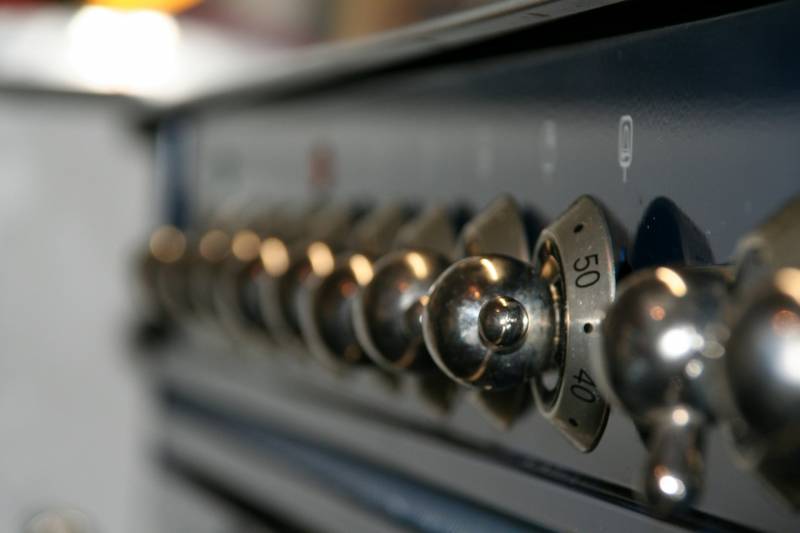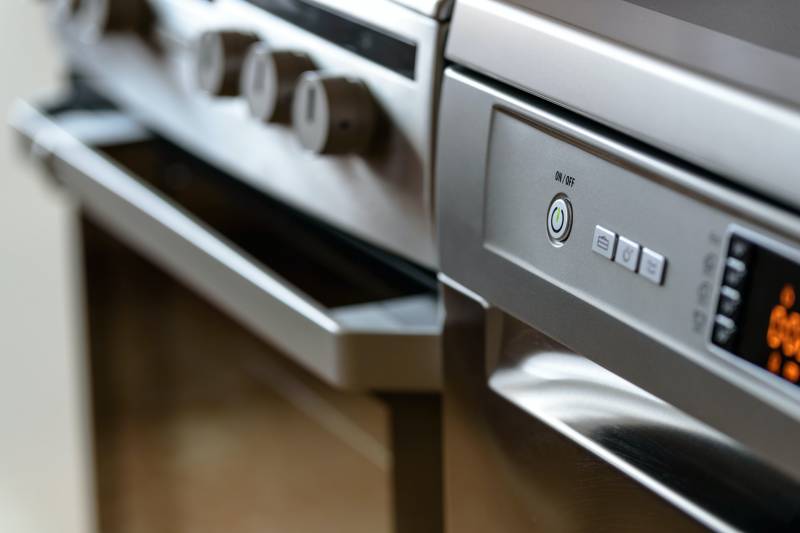Table of Contents
Baking requires a minimum temperature of 85 degrees. Over time, your oven may start taking a long time to preheat.

Or even in some rare cases, you might spend hours waiting for your oven to heat up. But why does it happen? What causes your oven to take so long to preheat?
In this article, we have compiled a list of all possible reasons that can make your oven slow to heat up and ways to fix the problems.
Reasons For Your Oven’s Slow Heat-up:
The cause of your oven taking a long time to preheat depends upon what type of oven it is – gas or electric. It may also vary between manufacturers.
Both gas stove and electric oven have their own reasons for slow pre-heating.
Gas Stove Takes Long To Pre-heat:
If you have a gas stove, the following reasons can cause your oven to take a long time to preheat.
1. Blockage In The Gas Pipeline:
Generally, all types of ovens, be it gas or electric, take about 5 to 20 minutes to preheat. If your gas stove takes more than 5 to 20 minutes to preheat, the first possible culprit can be the obstruction or blockage in the gas supply line.
Due to rusting or corrosion, gas pipelines get obstructed by the wreckage of the material.
To Fix This Issue:
First, stop the gas supply. Then, fix the affected part of the supply line by removing the accumulated debris. Hopefully, this will be enough to increase the flame and decrease the time to preheat.
2. Defective Venturi Tube:
If there is no blockage in the gas pipeline, the next possible culprit behind the slow preheat can be a defective venturi tube.
A venturi tube is a narrow tube that determines the flow rate or speed of the gas in the pipe. Any defect in the venturi tube may cause the loss of heat. As a result, the time to preheat the oven would be increased.
Generally speaking, all venturi tubes work on the principle of high or low pressure and speed. Therefore, any defect may cause a disturbance to the gas supply of your oven.
To Fix This Issue:
It’s best to call a professional to repair the venturi tube. Sorting the defective venturi tube issue should be enough to decrease the time of preheating.
3. Failing Oven Igniter:
Another culprit causing your oven to slow down can be a failing igniter.
The igniter is used to start up the burning or combustion process. It opens the gas valve in the oven so that the heating can start.
If the igniter of your oven is not working properly or doesn’t light up when activated, it should be replaced with the new one.
4. Defective Thermostat/Selector Switch:
The thermostat or selector switches are also called the function switches in an oven. They are working behind the control knob and can perform many of the tasks in an oven.
If your oven is taking forever to preheat, there is a chance that the thermostat or selector switch of your oven isn’t working properly.
For checking its function, use the multimeter. If it shows a value of zero, it means your thermostat is working correctly. Otherwise, you need to replace the thermostat with the new one.
5. Faulty Relays:
If the gas pipeline, thermostat, venturi tube, and igniter of your oven are working properly, but still, your oven is taking time to preheat, the next possible culprit can be the relay of your oven.
A relay is a key or switch that may control the gas burner of your oven. Your oven will take a long time to preheat if the relay is faulty or not working correctly.
To Fix This Issue:
In case of a damaged or defective relay, replace the control board of the relay with the proper working relay.
Electric Oven Takes Long To Pre-heat:
If you have an electric oven, the following reasons can cause your oven to take a long time to preheat.

1. Faulty Heating Element:
One of the leading causes of the slow preheating of an electric oven is the faulty heating element. Over time, some heating elements in your oven may get damaged or worn out, resulting in slow preheat or no heat at all.
To Fix This Issue:
Unfortunately, there is no other solution for a damaged or worn-out heating element than replacing it with a new one.
You can sort the problem only by purchasing the new heating element from the constructor or manufacturer company.
2. Broken Or Failing Oven Temperature Sensor Or Bulb:
The oven temperature sensor or the bulb monitor the temperature of the oven. The oven temperature sensor also brings the temperature of the oven up to the required level.
If the oven temperature sensor is broken or failed, it would no longer maintain or monitor the temperature of the oven. As a result, this can increase the time to preheat your oven.
Use the ohmmeter to check the working of your oven’s temperature sensor or bulb. If it is not working properly, you’ll need to replace it with a new one.
To Fix This Issue:
First, disconnect the power supply of your oven. Then replace the temperature sensor or bulb and restore the power supply of your oven.
3. Door Seal:
The door seal is an essential part of an oven. It plays a vital role in efficient preheating. If the door seal of your oven is worn out or perished with time, it may cause the release of heat outside, making your oven take forever to preheat.
Therefore, if you find that your oven is not properly cooking the food or heat is getting released from the oven, replace the door seal.
Two types of door seals are generally used – a rubber seal or the woven mesh seal. You can get them from Amazon or a nearby store. Replacing the door seal would prevent heat loss, and your oven would take normal time to preheat.
The Takeaway:
To conclude, a range of different reasons can cause your oven to take so long to preheat. From blockage in the gas pipeline and defective venturi tube to failing ignitor and faulty sensor bulb can slow down oven pre-heating.
Most of the problems related to gas stoves can be checked and corrected without calling a maintenance specialist. However, if you have an electric oven with many controls, it’s better to call a repairman than messing things on your own




![Why Does My Bathroom Smell? [All Causes] Why Does My Bathroom Smell? [All Causes]](https://homesteadandprepper.com/wp-content/uploads/2021/05/Why-Does-My-Bathroom-Smell-150x150.jpg)



